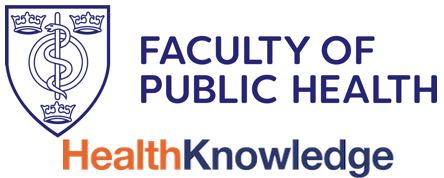Health and Social Behaviour: The effects on health of different diets (e.g. "Western" diet)
Research has shown that different diets have different effects on health - some diets have negative health effects whilst other diets have demonstrated positive health effects.
Negative health effects
Western diet
The Western diet is typically described as being high in total energy, high saturated fat (butter, red meat), low fibre and high salt. The diet is known to have negative effects on health. The high energy intake combined with low energy
expenditure (see section on physical activity) has resulted in escalating rates of adult and childhood obesity. The high saturated fat content of the diet also impact on the rates of obesity. In addition, saturated fat increases the risk of breast
cancer whilst the low intake of dietary fibre increases the risk of colorectal cancer. High salt intake and low potassium is a risk factor for hypertension and stroke.
South Asian Diet
The South Asian diet is generally consumed by people whose ancestry originates from the Indian Subcontinent (countries such as India, Pakistan, Sri Lanka and Bangladesh). A dramatic increase in the prevalence of type 2 diabetes and cardiovascular
disease in the South Asians is observed in many parts of the world including the United Kingdom. Both these diseases are strongly linked to diet and dietary practices within this population group. For example, they have a high total dietary fat
content as fat (oil, butter, ghee) is an integral part of Indian cooking and fried snacks are commonly eaten (e.g. samosas and bhajis). In addition, increasing rates of obesity are being seen among westernised South Asians owing to cultural and
environmental influences, such as the negative impact of the Western diet on the traditional and healthier South Asian diet.
Positive health effects
Mediterranean Diet
The health benefits of the Mediterranean diet date back to the early 1960s when high adult life expectancy and low rates of chronic diseases (coronary heart disease, certain cancers and diabetes) were reported across the Mediterranean region.
Eight key components of the Mediterranean diet were identified:
- High mono-unsaturated (olive oil) to saturated fat ratio
- High consumption of fruits
- High consumption of vegetables
- High consumption of legumes
- High consumption of cereals (including bread)
- Low consumption of meat and meat products
- Moderate consumption of ethanol
- Moderate consumption of milk and milk products
The studies indicated that the greater number of these 8 components in the diet the greater the beneficial effect on health.
Japanese Diet
The Japanese diet is known for being high in soy protein, a source of phytoestrogens. These have been reported to help protect against heart disease, osteoporosis and some cancers, and reduces menopausal symptoms (e.g. hot flushes). Further
research, however, needs to take place before firm conclusions are reached.
References
- Keys A. (1970). Coronary Heart Disease in Seven Countries. Circulation 41(1):1-6
- Food Standards Agency http://www.food.gov.uk/ [accessed 01.08.08]
- Lewis, G. Sheringham, J. Kalim, K. Crayford, T. Mastering Public Health: A postgraduate guide to examinations and revalidation. The Royal Society of Medicine Press Limited
- Garrow J.S, James W.P.T, Ralph A. Human Nutrition and Dietetics (10th Edition). Churchill Livingstone (2001)
- Whitney E.N, Cataldo C.B, Rolfes S.R. Understanding Normal and Clinical Nutrition (6th Edition). Wadsworth / Thomson Learning (2002)
- Thomas B. Manual of Dietetic Practice (3rd Edition). Blackwell Science (2001).
© Hannah Pheasant 2008
